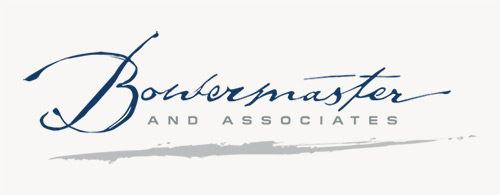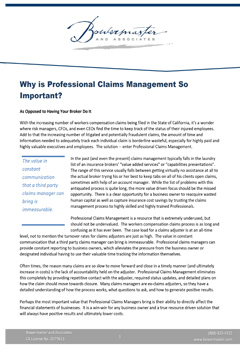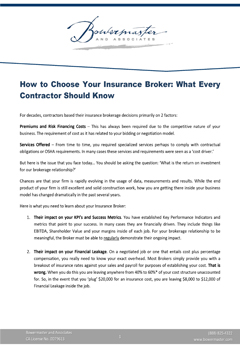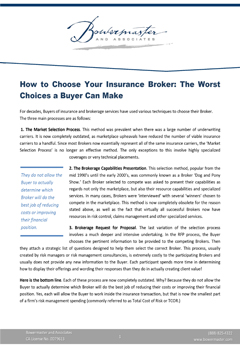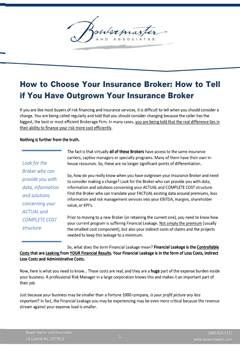// Broker Selection vs. Market Selection
The most ineffective and costly practice ever adopted by the Risk Management community is "market selection". Our apologies for ruffling feathers with this statement, but it's the truth. This practice involves divvying out insurance companies (i.e. markets) to 2 or 3 different brokers and then having those brokers only get proposals (i.e. quotations) from those markets. From a broker's perspective, you have just told me that you don't trust me, which begs the question, "why?" The gross flaw with this practice is that it makes the assumption that all brokers are created equal, as if there is no compelling difference from one broker or brokerage firm to the next. As soon as you as the insurance buyer feel that you need to do "market selection", then it's time to find a new broker.
